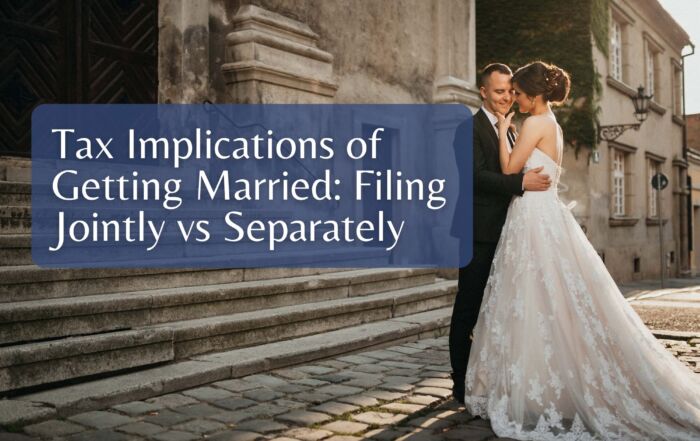Tax Efficiency in Retirement: Making Your Money Work Harder

As you transition into retirement, managing your finances becomes more crucial than ever. One key aspect that can significantly impact your financial well-being during these years is tax efficiency. Understanding and implementing tax-efficient strategies can make your money work harder for you, ensuring a more comfortable and secure retirement. Let’s explore the importance of tax efficiency in retirement and provide actionable tips to help you maximize your savings.
Understanding Tax Efficiency
Tax efficiency is the practice of organizing your financial affairs to minimize tax liability and maximize after-tax returns on investments. Retirement is when your income primarily comes from savings, investments, and retirement accounts, and it being tax efficient can greatly affect your available spending money and overall financial stability.
Why Tax Efficiency Matters in Retirement
- Preserves Your Savings: Reducing your tax liability means more of your hard-earned money remains in your pocket or your investment accounts, compounding over time.
- Ensures Sufficient Withdrawal Rates: By minimizing taxes, you can reduce the amount you need to withdraw from your retirement accounts to cover living expenses, helping your savings last longer.
- Adapts to Changing Tax Laws: A tax-efficient strategy is flexible, allowing you to adapt to changes in tax laws and regulations, ensuring you’re always optimizing your retirement funds.
Strategies for Tax-Efficient Retirement
Diversify Your Taxable Accounts
Diversification isn’t just for your investment types but also applies to the tax treatment of your accounts. Consider spreading your retirement savings across three types of accounts:
- Tax-Deferred Accounts (like traditional IRAs and 401ks): These accounts allow your investments to grow tax-free until you make withdrawals, which are then taxed as ordinary income.
- Tax-Free Accounts (such as Roth IRAs and Roth 401ks): Contributions are made with after-tax dollars, but withdrawals in retirement are tax-free.
- Taxable Investment Accounts: These accounts don’t have the same tax advantages as IRAs or 401ks, but offer more flexibility with fewer withdrawal restrictions and potential for capital gains strategies.
Consider Roth Conversions
Converting a traditional IRA to a Roth IRA can be a strategic move for tax efficiency. Although the conversion triggers a taxable event in the year it occurs, it allows for tax-free growth and withdrawals in retirement. This strategy can be particularly beneficial in years when your income is lower, placing you in a lower tax bracket when you convert funds versus when you plan to withdraw them.
Optimize Social Security Benefits
The timing of when you start taking Social Security benefits can significantly impact your tax liability. While benefits can begin as early as age 62, delaying benefits until full retirement age or later increases your monthly benefit and can potentially reduce the taxes owed on those benefits, depending on your overall income.
Use Required Minimum Distributions (RMDs) Wisely
Starting at age 72, you are required to take minimum distributions from your tax-deferred retirement accounts. These RMDs are taxable and can push you into a higher tax bracket. Consider using strategies such as Qualified Charitable Distributions (QCDs) to satisfy RMD requirements while reducing taxable income.
Plan for Healthcare Costs
Healthcare expenses can be significant in retirement, but planning for these costs can also offer tax advantages. Health Savings Accounts (HSAs), for example, offer triple tax advantages: contributions are tax-deductible, the account grows tax-free, and withdrawals for qualified medical expenses are not taxed. If you are able to contribute to an HSA through your employer, this may be great option for you depending on your family’s healthcare needs.
Having a Successful Retirement Strategy
Tax efficiency is a critical component of a successful retirement strategy. By understanding and applying the principles of tax-efficient investing and withdrawal, you can significantly enhance your financial security in retirement. It’s always advisable to consult with a financial advisor or tax professional to tailor these strategies to your specific situation, ensuring that your retirement savings work as hard as you did to earn them. Remember, the goal is to maximize your income in retirement while minimizing your tax burden, allowing you to enjoy your golden years with peace of mind and financial stability.
Have more questions? Contact Us
Casey Smith
President, Wiser Wealth Management
Share This Story, Choose Your Platform!
Wiser Wealth Management, Inc (“Wiser Wealth”) is a registered investment adviser with the U.S. Securities and Exchange Commission (SEC). As a registered investment adviser, Wiser Wealth and its employees are subject to various rules, filings, and requirements. You can visit the SEC’s website here to obtain further information on our firm or investment adviser’s registration.
Wiser Wealth’s website provides general information regarding our business along with access to additional investment related information, various financial calculators, and external / third party links. Material presented on this website is believed to be from reliable sources and is meant for informational purposes only. Wiser Wealth does not endorse or accept responsibility for the content of any third-party website and is not affiliated with any third-party website or social media page. Wiser Wealth does not expressly or implicitly adopt or endorse any of the expressions, opinions or content posted by third party websites or on social media pages. While Wiser Wealth uses reasonable efforts to obtain information from sources it believes to be reliable, we make no representation that the information or opinions contained in our publications are accurate, reliable, or complete.
To the extent that you utilize any financial calculators or links in our website, you acknowledge and understand that the information provided to you should not be construed as personal investment advice from Wiser Wealth or any of its investment professionals. Advice provided by Wiser Wealth is given only within the context of our contractual agreement with the client. Wiser Wealth does not offer legal, accounting or tax advice. Consult your own attorney, accountant, and other professionals for these services.





